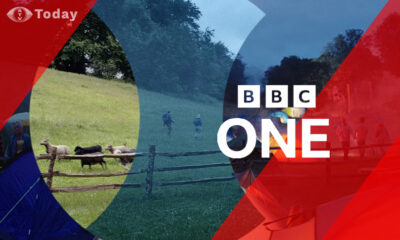Life at 50°C reveals the inside story of an Aboriginal family’s fight to stop a Queensland coal mine…
The Battle of Doongmabulla Springs, a new feature film from the BBC World Service’s Life at 50°C series reveals the inside story of one of Australia’s most contentious and politicised climate battles, between an international energy giant and an Aboriginal family indigenous to Queensland’s coal country heartland.
Energy giant Adani – which operates as Bravus Mining and Resources in Australia – was granted permission by the State of Queensland to construct the Carmichael coal mine in 2019. Approvals for the mine included rigorous plans to protect its groundwater after concerns were raised about potential environmental damage to the Doongmabulla Springs – a sacred site for the Aboriginal Wangan and Jagalingu People and crucial water source for local fauna.
The controversial mine has operated in Queensland’s Galilee Basin since December 2021 – but its critics say that despite assurances that it would not, the mine could be causing damage to the Doongmabulla Springs.
The new film explores why the mine’s approval remains so contested, and why – despite environmental concerns raised by some experts – many support it.
The World Service follows Adrian Burragubba, who is from the Wangan and Jagalingu People of Queensland. He and his family fear the coal mine, owned by billion-dollar conglomerate Adani, will damage the Doongmabulla Springs, which they hold sacred. Their concerns are supported by some top scientists. Burragubba has risked everything, including bankruptcy, in his battle against Adani and the State of Queensland.
With extraordinary access, the film offers an intimate look at a family fighting for their environmental heritage. The programme follows Adrian’s son Coedie as he ‘re-occupies’ land next to the mine site and Adrian, as he brings a landmark case to court, arguing the mine is impacting his human rights.
The family’s story reveals how challenging it can be for Aboriginal Traditional Owners to retain rights over their homeland, and the brutal history of forced resettlement of Aboriginal Australians in the twentieth century. Members of Adrian Burragubba’s extended family say Native Title law, which governs land rights when it comes to mining interests, are “shambolic” and “divide and conquer” Aboriginal communities. The decision on whether to sign an agreement with Adani split the W&J People, with the majority eventually voting to sign a deal with Adani.
Adani, operating as Bravus in Australia, told the BBC that it complies with all the agreements with Traditional Owners and provides them with employment and business opportunities, and that Burragubba’s family does not represent the majority.
Adani says the mine is operating lawfully and is no threat to the Springs. Similarly, the Queensland Government say they are committed to protecting the cultural and environmental values of the Springs, and that monitoring shows the mine is not currently a threat. But environmental experts tell the BBC that their research of the local groundwater suggests that there are dangerous levels of pollution.
The controversy over the future of coal in Australia has become a hotbed for political infighting. Often presented as jobs versus the environment, the contentious debate has seen regular clashes break out between local mining communities and out-of-town environmental activists.
Later, in coastal city Townsville, where many mining families are based, illuminating interviews with the coal industries’ many fierce supporters, including those benefiting from local mining jobs and local sports fans reveal the depth of the gulf in opinions.
This powerful film investigates one of the most controversial, and politicised public debates in Australia – offering an intimate portrait of those whose lives are inextricably linked to the Carmichael mine.
The Battle of Doongmabulla Springs is the fourth film in the BBC World Service’s second series of Life At 50°C – which explores the deadliest aspects of climate change. This year’s series, Water Crisis, reports from some of the hottest parts of the world where demand for water is already high – South Sudan, Syria, Australia and Colombia – to explore the real-world impacts on their populations
Life at 50C is available from today (Friday 20 June) on BBC iPlayer in the UK and the BBC World Service YouTube channel internationally.
Watch Life at 50°C on BBC iPlayer











